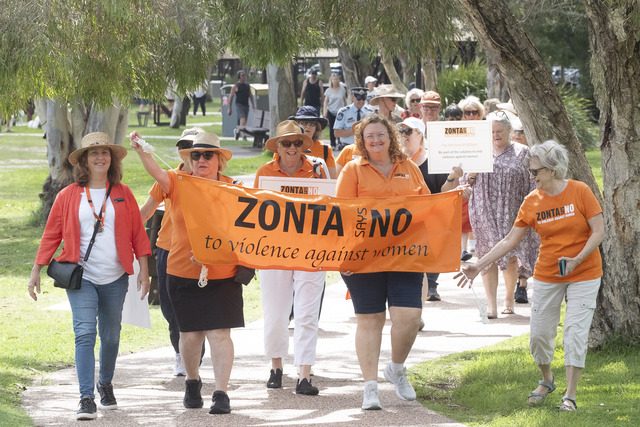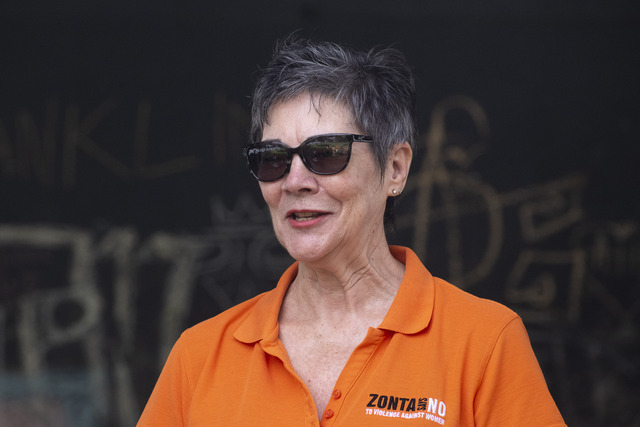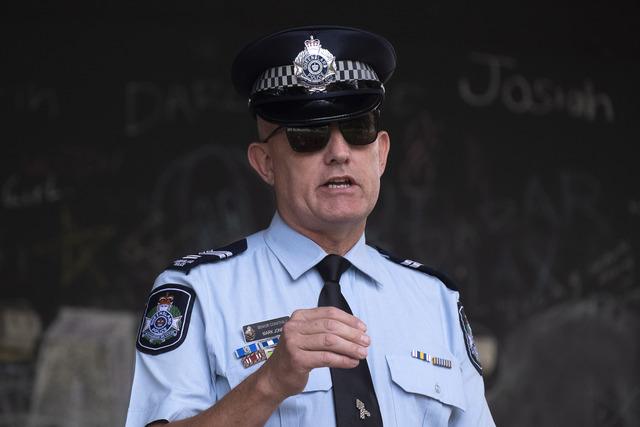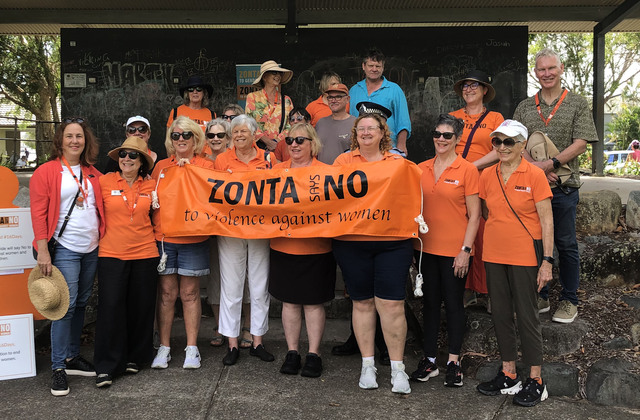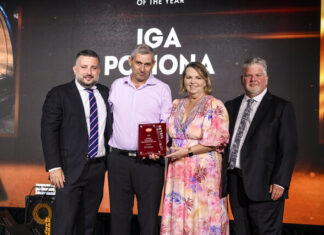The majority of Noosa police call outs – about 76 per cent – are to domestic violence matters, Noosa senior constable Mark Jones said on Sunday at the Zonta Club of Noosa annual march against gender-based violence.
Having been a police officer for 24 years, 17 of those working in Noosa, and as both a general duties frontline officer and the domestic violence liaison officer, Snr const Jones has seen quite a lot of domestic violence, an issue he is passionate about.
He is also part of the team that delivers specialised domestic violence training to our Sunshine Coast police officers.
“On a personal level I was exposed to domestic violence as a child – by my father toward my mother,” Snr const Jones said.
“I want to do everything possible, within my role, to make sure no child or person feels that their home is unsafe.
“As police officers we are faced with incidents of domestic violence on many levels every day. It is a large proportion of our work and sadly, it is increasing.
“Domestic violence is personal, diverse, complex and multifactorial. It often occurs behind closed doors and out of sight.”
Snr const Jones said victims, 70-76 per cent being female, present in different stages of trauma.
“Our role is to minimise further trauma and maximise safety,” he said.
“We have created safe rooms at police stations, including Noosa, where victims of domestic violence can be supported when talking about their experiences.
“Domestic violence is not accepted in the community or in legislation.
“One death from an intimate partner is not accepted. One victim of domestic violence is one too many.”
When Snr const Jones began his police career in the UK before moving to Australia there was no domestic violence legislation. Police only had criminal legislation with which to deal with the issue.
As knowledge and community awareness of domestic violence has increased more legislation has been enacted.
On 26 May 2025 new coercive control legislation comes into effect, Snr const Jones said.
“Coercive control is the power and control that the perpetrator has on a victim and is a pinnacle part of DV. It occurs over a period of time. The perpetrator uses different tactics that target the vulnerability of the victim, to cause them fear of harm until the victim changes their behaviour,” he said.
“Controlling what she could wear, where she was going to be. It can take many forms. It’s a pattern of behaviour that causes the other person harm. It can cause fear so that the victim changes their behaviour.
“This was clearly outlined in the coroner’s report into the death of Hanna Clark and her children.”
A coronial inquest found Hannah Clarke’s estranged husband showed 29 out of 39 “lethality indicators” of domestic violence including suicide threats, child custody disputes and pending separation, before dousing her and her three children in petrol and setting them alight in a Brisbane suburb in 2020.
Laws are also being implemented to enable police to charge any person who assists perpetrators in committing domestic violence against a victim, Snr const Jones said.
“This is a powerful message from the government and police to perpetrators to show them that domestic violence and coercive control are not acceptable.”
Snr const Jones called on the community to work with police to help them eliminate domestic violence.
“We have a long and difficult road ahead of us, but if we work together as a community and in unity, we can reduce domestic violence and maximise the safety of victims,” he said.
“The QPS Domestic Violence Prevention Strategy is about collaboration. It’s too difficult for police on their own to deal with it. Together as a community, with the help of our domestic violence support services and with your help, we can prevent domestic violence, protect victims and hold perpetrators accountable for their actions.
Borrowing from a post from Zonta Perth, Zonta Club of Noosa president Tracey Stubbs told attendees how the Zonta International campaign, the 16 Days of Activism against Gender-Based Violence was started to raise awareness and drive local action to eliminate violence against women and girls.
“It was initiated in 1991 by activists at the first women’s global leadership institute. The campaign begins on the 25 November on the International Day for the Elimination of Violence against Women, and runs until Human Rights Day on 10 December to highlight that violence against women is a violation of human rights,” she said.
“Over the years it’s become a unifying platform for organisations, governments and individuals worldwide to advocate for policies, share resources and information on strategies to prevent and respond to gender-based violence.”
Tracey said Zonta clubs across the world organised various activities for the campaign.
Zonta Noosa, which was established 31 years ago, has organised a march for several years.
Family and domestic violence support services:
1800 Respect National Helpline: 1800 737 732
Women’s Crisis Line: 1800 811 811
Men’s Referral Service: 1300 766 491
Mensline: 1300 789 978
Lifeline (24-hour Crisis Line): 131 114

